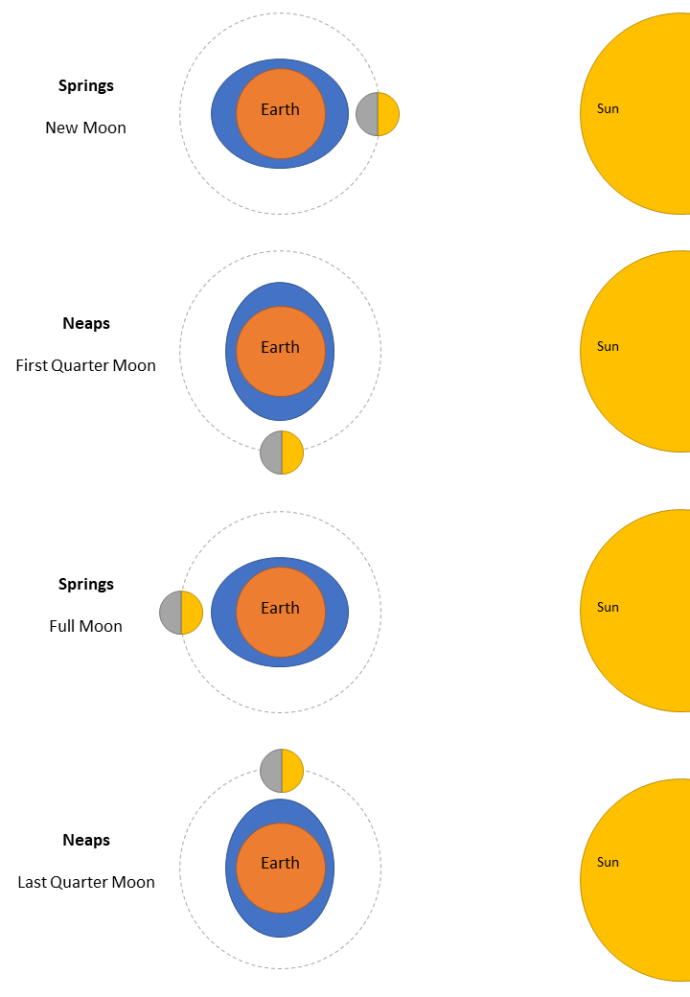Seasons
There are four seasons: Spring, Summer, Autumn and Winter. Parts of the Earth experience each season once each year.
You might think it gets colder in the winter because the Earth moves further away from the Sun. This is not true! In fact, when it is winter in Europe it is summer in Australia. So whenever it is winter somewhere on Earth, another part of the planet is having its summer.
Tides
The level of the sea rises and falls about two times each day. We call these changes tides.

Life Elsewhere
Astrobiologists believe that three ingredients which are vital for life. They are water, energy, and organic molecules such as carbon (C). Energy and organic molecules are abundant in the Universe. But liquid water is rare.
- The Habitable Zone (HZ)
A habitable zone (HZ) is the area around a star where liquid water could exist on or near the surface of a planet. We call it an HZ because we believe liquid water is vital for the existence of life.
An HZ is sometimes called a CHZ, where the C stands for 'continuously' or 'circumstellar'. The name Goldilocks Zone is perhaps a more useful way to describe an HZ. It is a region that is not too hot, and not too cold, but just right! The size and location of an HZ depend on the size and type of the star.
Life on Earth
Planet Earth was formed around 4.5 billion years ago. The first signs of life began about 3.6 billion years ago, in the ocean. The water in the ocean protected organisms living there from the dangerous rays of the sun.
Life on Earth has taken billions of years to evolve. Life is characterised as anything which has the following traits:
Climate Change
The Earth's climate is always changing. It shifts through a regular cycle of temperatures. These cycles last around 100,000 years. They move the Earth through warm periods, then cold ones. This is known as climate oscillation.
A big effect of climate change is the rise in global temperature. Humans have released greenhouse gases into the atmosphere (read more about the Greenhouse effect below). As greenhouse gases rise, so do the average temperatures on Earth. Not all areas on Earth will experience climate change in the same way.
Some areas will become much warmer. Others will become colder. Higher temperatures cause glaciers to melt. When they melt, more freshwater ends up in the ocean. This contributes to sea-level rise and changes crucial processes in the ocean.
Life on Earth
How are living things connected? What do they need to survive? Can we find clues in the Solar System that help us find out why there is life on Earth?
Hot, Cold or Just Right
Design a Planet
There are 8 planets in our Solar System. And there are many thousands of planets orbiting around other stars. We call these planets exoplanets.
